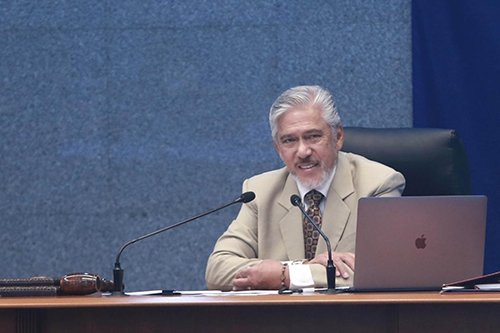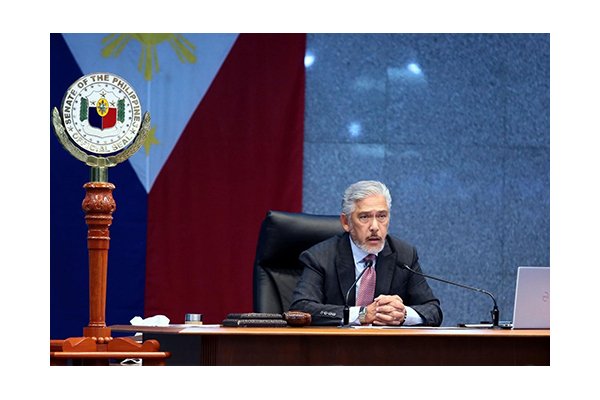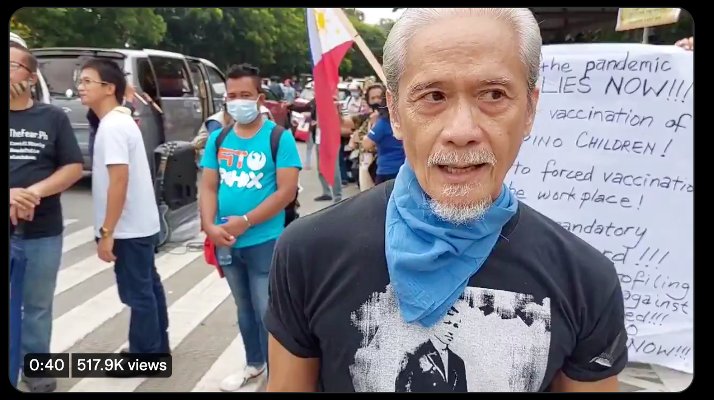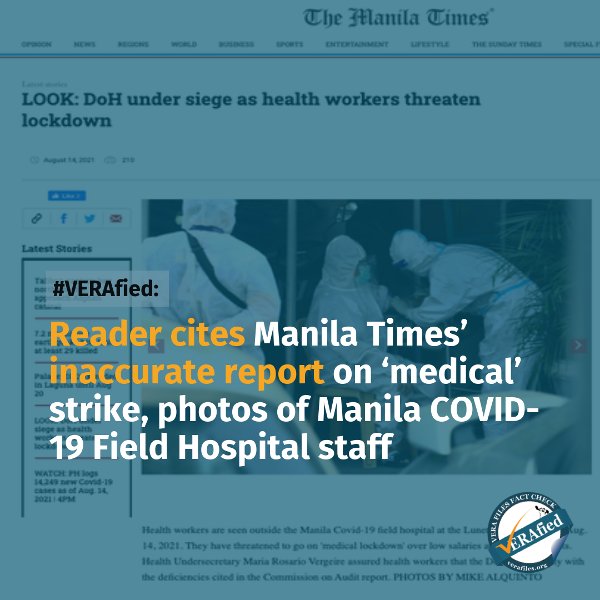Senate President Vicente Sotto III claimed that hardheaded Filipinos are to blame for the cases of coronavirus disease 2019 (COVID-19) in the country. This is without basis.
STATEMENT
In an Oct. 3 interview, Sotto was asked if the recent inclusion of the Philippines in the top 20 countries with the most number of confirmed COVID-19 cases is an indication that the government’s handling of the health crisis is ineffective. He replied:
“Hindi rin…katulad tayo ng ibang nasa top 10…o top 20, puro tayo mga medyo matindi ang democratic processes na kaunting may ano, ayaw, ‘di ba?…Kaya madali rin tayong mahawa, kasi masyadong matigas ang ulo.
(Not really…we’re like the other countries in the top 10…or top 20, we all have somewhat intense democratic processes so when [the government] does something, [the people] go against it, right?…This is also why we’re prone to getting infected, because we’re so hardheaded.)”
He was then asked to comment about United States President Donald Trump testing positive for the disease:
“Iyon na nga, kaya huwag niyo nang ipapa-pares ‘yung atin doon. Iba ‘yong sa atin, ‘yung sa atin, katigasan lang ng ulo natin ‘yon…Hindi lahat, ha; marami sa atin talaga sumusunod. Nakita mo, hindi nadadale ‘yung mga sumusunod, hindi ba?…104,700,000 Filipinos ang sumusunod; may 300,000 na hindi sumusunod, ‘yun ‘yung nadale.”
(Yes, that’s true. That is why you should not compare them (US) with us. Ours is different. Ours is just hardheadedness. Not all; many of us are obedient. You see, those who follow (health protocols) are not infected. 104, 700,000 Filipinos follow, but the 300,000 who don’t, get infected.)
Source: DWIZ 882, USAPANG SENADO kasama si CELY ORTEGA–BUENO, Oct. 3, 2020, watch from 16:28 to 20:08
FACT
The Department of Health attributed the surge of COVID-19 cases to the country’s increase in testing and contact tracing capacity, ongoing community transmission, and delay in reporting of confirmed cases — not hardheadedness — according to a statement of Health Undersecretary and Spokesperson Ma. Rosario Vergeire sent to VERA Files in August.
In a separate response to emailed questions, Vergeire addressed claims that the “hardheadedness” of Filipinos is the cause of over 330,000 COVID-19 cases in the country. She wrote:
“The COVID-19 is a fairly new disease which came in as a surprise to all nations. Due to its novelty, there was scarcity of data in the beginning which might have contributed to the rapid rise of cases during the early part of the pandemic. Back then, the minimum public health standards were not yet fully implemented and the public and health care workers were not as informed. However, as data on COVID-19 became more available, the Department of Health and other agencies swiftly formulated policies and guidelines that eventually helped curb the number of infections in the country.”
Source: Department of Health, Response to VERA Files’ inquiry, Oct. 12, 2020
She said the DOH “believes that the Filipino population is capable of self-discipline and behavioral change” and that, with “right information and sufficient social cues,” Filipinos will be able to “modify their behavior to reduce the spread of COVID-19.”
For this reason, she added, the department launched the BIDA campaign, which encourages the public to continue practicing health measures against COVID-19, and released guidelines for companies and institutions in minimizing the spread of the virus in their infrastructures.
Even then, Vergeire said Filipinos cannot be “complacent” because there is a possibility that “we may revert back (sic) to our previous situation,” referring to the imposition of strict community quarantine and limited economic activities.
Results of the most recent survey of Social Weather Stations (SWS) likewise contradict Sotto’s claim. The survey, conducted from Sept. 17 to 20, shows that a majority of adult Filipinos “always” practice COVID-19 safety measures. The SWS survey polled 1,249 respondents aged 18 and above from various parts of the country and found that:
- 79 percent always use a face mask when going out of their houses;
- 67 percent always wash their hands several times a day;
- 60 percent always keep “physical distance” or a safe distance of at least one meter from other people when outside their homes; and,
- 56 percent always use a face shield whenever riding public transportation or going to establishments like malls, markets, or drugstores.
The SWS survey, conducted through mobile phone interviews, had a sampling error margin of ±3 percent for its nationwide results.
The September results were not far from earlier runs of similar polls in May 2020 and July 2020.
In another global survey jointly conducted by the Institute of Global Health Innovation (IGHI) at Imperial College London and YouGov, results, as of Sept. 28, also show that the majority of Filipinos continue to practice health measures, such as always wearing a mask in public places (87 percent) and improving personal hygiene (83 percent), against COVID-19.
In its September report, the IGHI found that the Philippines fared well in comparison to 10 other Asian countries surveyed. It is second to Singapore with respondents who said they always wear masks outside their homes, and first in always washing hands and avoiding going outside (tied with India), among other measures.
The Philippines recorded its first COVID-19 case in late January when a woman from Wuhan City, China — where cases of the viral disease first emerged — was confirmed positive for the virus while visiting the country.
Other cases were soon recorded that included not only foreigners but also Filipinos who had travel history or contracted the virus from the local community. On March 7, the DOH declared there is already a local transmission of COVID-19. Community lockdowns have been imposed since March 15. (See VERA FILES FACT CHECK: Duterte repeats false claim that PH was ‘first’ to impose COVID lockdown in Asia)
As of Oct. 20, the Philippines has reported 360,775 cases, of which 310,642 are of recoveries while 6,690 are of deaths. The latest reproduction number of COVID-19 is 0.93, which means that an infected individual can pass on the virus to less than one person. (See VERA FILES FACT SHEET: COVID-19 numbers used in measuring success of gov’t response explained)
Filipinos from various sectors, including medical workers, have been infected with COVID-19. As of Oct. 19, 10,851 health workers have fallen ill to the virus, with 10,088 already recovered, 429 with active cases, and 64 deaths.
Other government institutions also publicize their list of COVID-19 positive personnel. In the House of Representatives, 85 were confirmed cases, including 10 representatives, with 70 recoveries and five deaths, including two representatives, as of Oct. 3.
In the Senate, four senators have contracted the virus. On March 12 and June 23, access to the Senate building had to be restricted because some staffers and resource persons tested positive for COVID-19.
Some high-ranking Cabinet officials also caught COVID-19. Interior Secretary Eduardo Año, vice chair of the National Task Force Against COVID-19, got infected twice, in March and August. Others were Education Secretary Leonor Briones who tested positive in March and Public Works Secretary Mark Villar, also the chief isolation czar, in July.
Sources
DWIZ 882, USAPANG SENADO kasama si CELY ORTEGA–BUENO, Oct. 3, 2020
Senate of the Philippines, Press Release – PRIB: Transcript of interview of Senate President Vicente C. Sotto III with Ms. Cely Bueno of DWIZ, Oct. 3, 2020
Social Social Weather Survey, SWS September 17-20, 2020 National Mobile Phone Survey – Report No. 4: Large majorities still practice the Covid-19 safety measures, Sept. 29, 2020
Social Weather Survey, SWS May 4-10, 2020 Covid-19 Mobile Phone Survey – Report No. 4: Since the start of the Covid-19 crisis, 77% of Filipinos always use a face mask, 68% always wash their hands, and 64% always keep “social distance”, May 25, 2020
Social Weather Survey, SWS July 3-6, 2020 National Mobile Phone Survey – Report No. 7: Large majorities of Filipinos continue to practice Covid-19 prevention measures, July 24, 2020
YouGov, Personal measures taken to avoid COVID-19, Accessed Oct. 14, 2020
Imperial College London, Covid-19: Social behaviours across Asia, September 2020
Department of Health, Response to VERA Files’ inquiry, Oct. 12, 2020
Department of Health, Vera Files Interview request for Dr. Rosario Vergeire on COVID-19.pdf, Aug. 10, 2020
Department of Health, DOH CONFIRMS FIRST 2019-NCOV CASE IN THE COUNTRY; ASSURES PUBLIC OF INTENSIFIED CONTAINMENT MEASURES, Jan. 30, 2020
Department of Health, DOH REPORTS 1 COVID DEATH AND 3 NEW CASES, March 12, 2020
Department of Health, DOH CONFIRMS LOCAL TRANSMISSION OF COVID-19 IN PH; REPORTS 6TH CASE, March 7, 2020
Department of Health, Case Bulletin No. 220 , Oct. 20, 2020
Department of Health, COVID-19 Philippine Situation No. 175, Oct. 19, 2020
Senate of the philippines, Press Release – Sotto: Restricted Access and Not Lockdown, March 12, 2020
Senators infected from COVID-19
- Senator Juan Miguel Zubiri official Facebook page, To my dear fellow Filipinos, my Kababayans, March 16, 2020
- Senator Bong Revilla official Facebook page, Nakakalungkot po na balita – I am… – Ramon Bong Revilla, Jr., Aug. 9, 2020
- Senator Koko Pimentel, ‘Homebody’ Koko Pimentel denies he violated coronavirus self-quarantine | ANC, March 16, 2020
- Senator Sonny Angara official Facebook page, STATEMENT OF SEN. SONNY ANGARA., May 2, 2020
Senate building restriction
- Manila Bulletin, Senate mulls lockdown after two employees test positive for COVID-19, June 23, 2020
- Inquirer.net, Senate under ‘semi-lockdown’, 2 employees COVID-positive, June 23, 2020
- CNN Philippines, Senate under ‘semi-lockdown’ after two employees test positive for COVID-19, June 23, 2020
Representatives victimized by COVID-19
- Manila Bulletin, Congresswoman is 10th solon to test positive for COVID-19, Sept. 16, 2020
- Rappler.com. Sorsogon congresswoman Ditas Ramos dies, Sept. 8, 2020
- Philstar.com, Another lawmaker with COVID-19 dies | Philstar.com, Sept. 9, 2020
Cabinet officials positive for COVID-19
- Department of Foreign Affairs, STATEMENT OF THE DILG ON THE DETERMINATION OF THIS DEPARTMENT TO FIGHT THE WAR AGAINST COVID-19 – News, April 1, 2020
- Department of Interior and Local Government, STATEMENT OF THE DILG SECRETARY EDUARDO M. AÑO – News, Aug. 17, 2020
- Department of Education, Briones tests negative for COVID-19 | Department of Education, March 17, 2020
- Public Works Secretary Mark Villar, I regret to announce that today, July 15, I received my test result and it is positive for COVID-19., July 15, 2020
- Presidential Communications Operations Office, Gov’t assigns PH anti-COVID czars, July 13, 2020
(Guided by the code of principles of the International Fact-Checking Network at Poynter, VERA Files tracks the false claims, flip-flops, misleading statements of public officials and figures, and debunks them with factual evidence. Find out more about this initiative and our methodology.)




